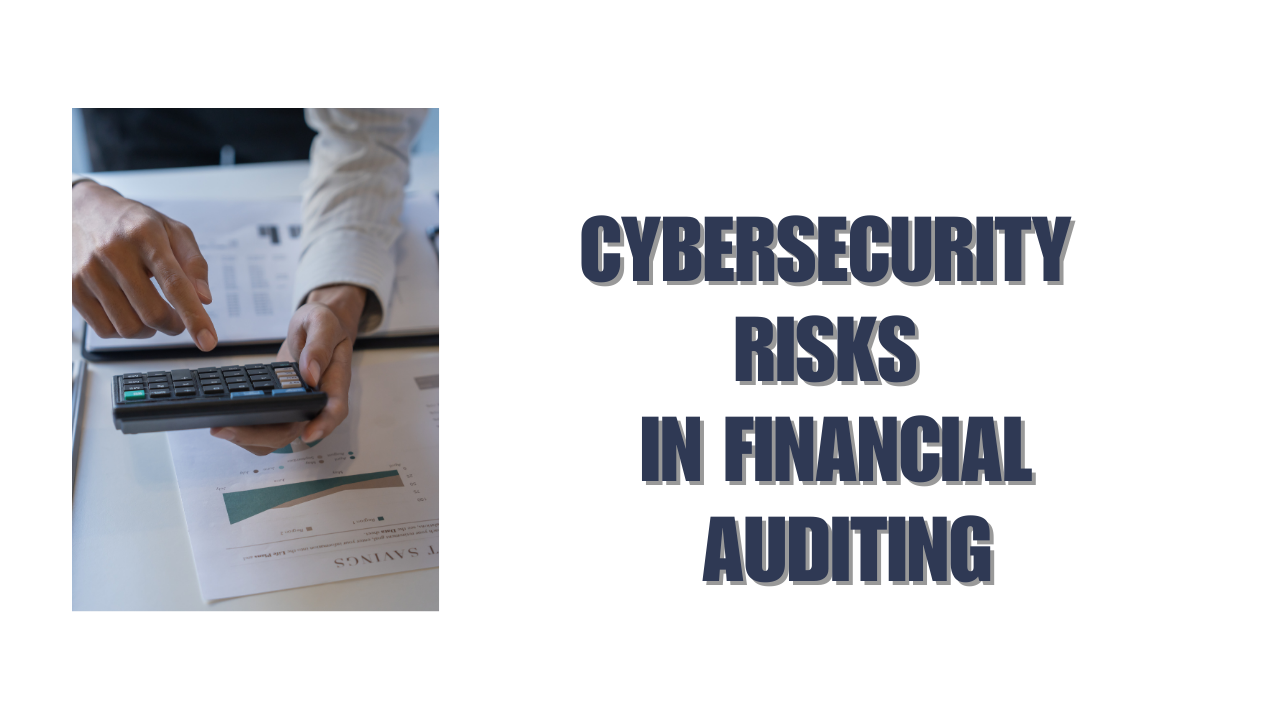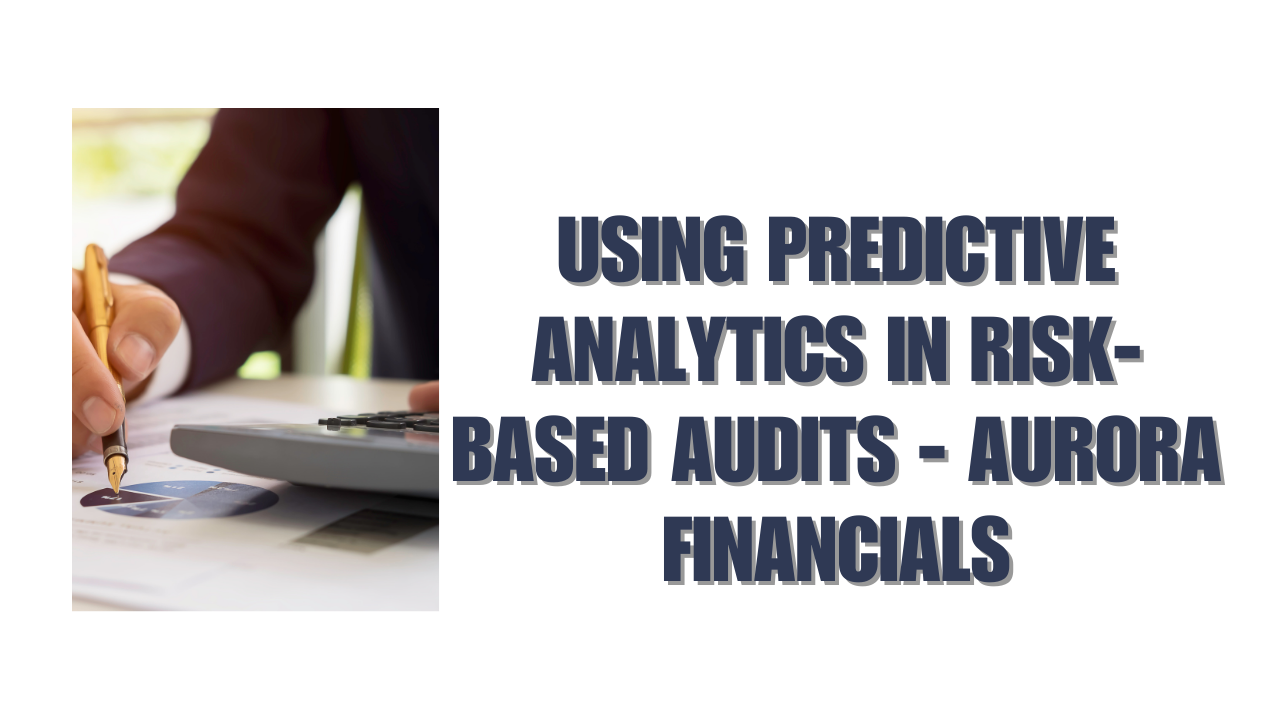In today’s digital era, financial data is increasingly vulnerable. Companies rely on sophisticated software, cloud platforms, and digital communication tools to manage financial reporting and auditing processes. While these technologies enhance efficiency, they also introduce cybersecurity risks that can compromise financial auditing, damage stakeholder trust, and create regulatory exposure.
For executives, boards, and finance teams, understanding these risks-and how to mitigate them-is essential for safeguarding data integrity, compliance, and organizational reputation.
Understanding Cybersecurity Risks in Financial Auditing
Financial auditing involves reviewing, verifying, and analyzing sensitive financial information. This makes audit processes a prime target for cyberattacks. Common cybersecurity risks in auditing include:
1. Data Breaches
Audit teams handle sensitive financial statements, internal control documentation, and supporting evidence. Unauthorized access to these data sets can result in leaks, exposing companies to reputational harm, financial loss, and legal liability.
2. Phishing and Social Engineering Attacks
Auditors often communicate with management, employees, and external partners. Cybercriminals may exploit these channels through phishing emails or impersonation attempts to gain access to confidential financial information.
3. Ransomware Threats
Ransomware attacks can encrypt critical audit files, rendering them inaccessible. This can delay audits, impact reporting deadlines, and create financial and regulatory risks.
4. Insider Threats
Employees or third-party vendors with access to audit systems may intentionally or accidentally compromise sensitive data. Lack of monitoring or weak access controls exacerbates this risk.
5. Software Vulnerabilities
Financial auditing increasingly relies on cloud-based solutions and specialized software. Unpatched systems or misconfigured platforms create vulnerabilities that attackers can exploit.
Impact of Cybersecurity Risks on Financial Auditing
The consequences of compromised audit data can be severe:
- Inaccurate Financial Reporting: Breaches or data manipulation can result in errors or omissions in financial statements, undermining stakeholder confidence.
- Regulatory Non-Compliance: Companies may fail to meet reporting standards, risking fines or sanctions from regulators.
- Operational Disruption: Delays in audits affect decision-making, reporting cycles, and strategic planning.
- Reputational Damage: Clients, investors, and partners may lose trust in a company’s ability to safeguard sensitive information.
- Financial Loss: Costs include incident response, remediation, legal fees, and potential penalties.
Cybersecurity risks transform financial auditing from a procedural compliance exercise into a strategic vulnerability if not properly managed.
Best Practices to Mitigate Cybersecurity Risks in Auditing
Businesses can protect their audits and sensitive financial data by adopting robust cybersecurity measures:
1. Implement Strong Access Controls
Restrict access to audit data based on role and responsibility. Use multi-factor authentication and regularly review permissions to minimize the risk of unauthorized access.
2. Secure Communication Channels
Use encrypted email, secure file transfer protocols, and vetted collaboration tools to protect sensitive audit communications.
3. Regular Software Updates and Patching
Ensure all audit software and platforms are updated with the latest security patches to address vulnerabilities.
4. Employee and Auditor Training
Educate teams on phishing, social engineering, and other cyber threats. Awareness is critical to prevent accidental breaches or insider risk.
5. Data Backup and Recovery Plans
Regularly back up audit data and test recovery procedures. This reduces the impact of ransomware or other data loss events.
6. Vendor Risk Management
Ensure third-party providers, such as cloud platforms or outsourced audit services, comply with strong cybersecurity standards. Contracts should specify security expectations and responsibilities.
7. Continuous Monitoring and Incident Response
Monitor audit systems for unusual activity and have a well-defined incident response plan. Rapid detection and mitigation limit potential damage.
Emerging Cybersecurity Challenges in Financial Auditing
The evolving digital landscape introduces new threats that auditors and finance teams must address:
- AI and Automation Risks: While AI tools improve efficiency, they can be manipulated or exploited if cybersecurity is weak.
- Remote Work Vulnerabilities: Increased remote collaboration expands attack surfaces, requiring secure access and monitoring protocols.
- Regulatory Complexity: Global companies must navigate varying cybersecurity compliance standards, including GDPR, SOX, and other data protection laws.
- Supply Chain Attacks: Cybercriminals may target third-party vendors or audit software providers to indirectly compromise financial data.
Staying ahead of these emerging risks is essential for resilient and secure audit processes.
The Role of Leadership in Securing Audits
CEOs, CFOs, and boards play a pivotal role in safeguarding financial audits against cyber threats:
- Foster a Security-Conscious Culture: Promote cybersecurity awareness across finance and audit teams.
- Allocate Resources for Technology and Training: Invest in secure platforms, encryption tools, and continuous education.
- Collaborate With IT and Audit Teams: Ensure integrated risk management that combines cybersecurity and financial auditing expertise.
- Review Policies and Procedures: Regularly update protocols to reflect changing technology, threats, and regulatory requirements.
Strong leadership ensures that cybersecurity is treated as an integral part of audit planning and execution, not an afterthought.
Benefits of Cybersecurity-Conscious Auditing
Proactively addressing cybersecurity risks in financial auditing delivers multiple advantages:
- Reliable and Accurate Reporting: Protects the integrity of financial statements and supporting documentation.
- Stakeholder Confidence: Investors, lenders, and regulators trust companies that safeguard sensitive data.
- Regulatory Compliance: Reduces risk of non-compliance with global data protection and audit standards.
- Operational Resilience: Minimizes disruptions caused by cyber incidents and ensures continuity of audit processes.
- Strategic Advantage: Companies demonstrating robust cybersecurity practices strengthen their market credibility and reputation.
Cybersecurity-conscious audits transform potential vulnerabilities into competitive strengths.
Conclusion
In the digital age, financial auditing is inseparable from cybersecurity considerations. From protecting sensitive data to ensuring regulatory compliance and stakeholder trust, robust cybersecurity measures are essential for credible audits.
At Aurora Financials, we integrate advanced cybersecurity protocols into our audit processes. By combining technical expertise, rigorous procedures, and proactive risk management, we help organizations safeguard audit integrity, enhance transparency, and protect critical financial information.
In a world where data is both an asset and a target, addressing cybersecurity risks is no longer optional-it is essential for every organization conducting financial audits.






